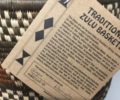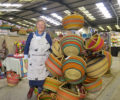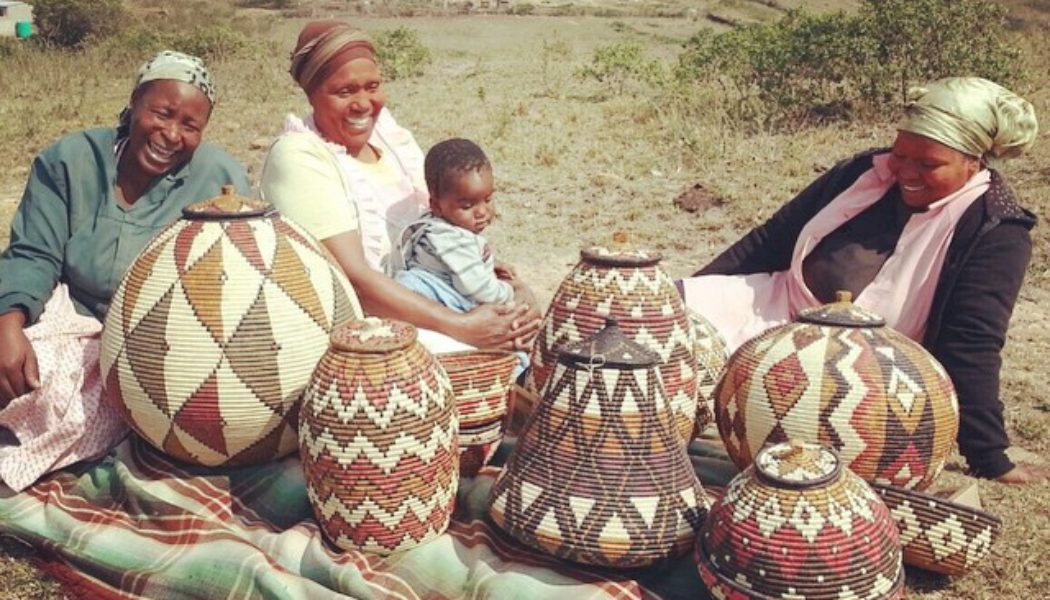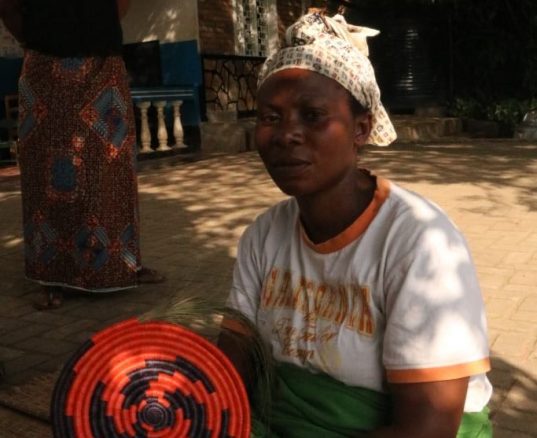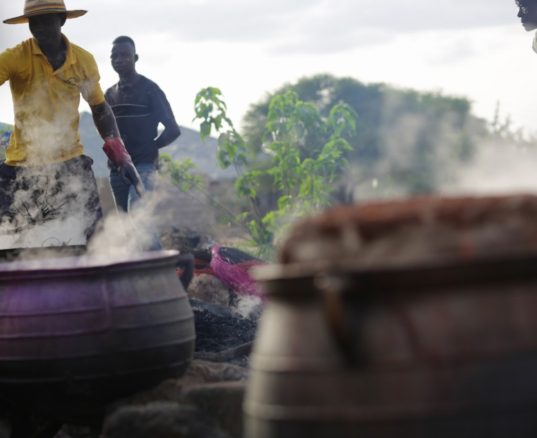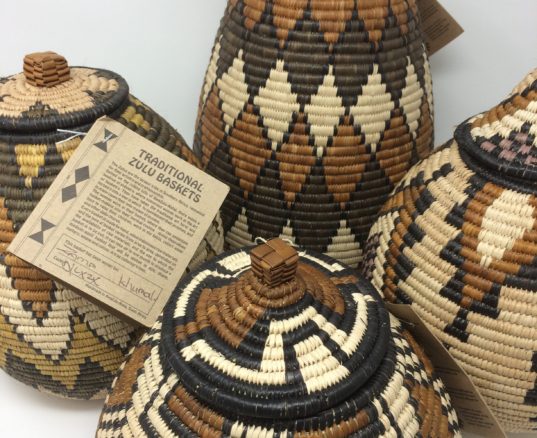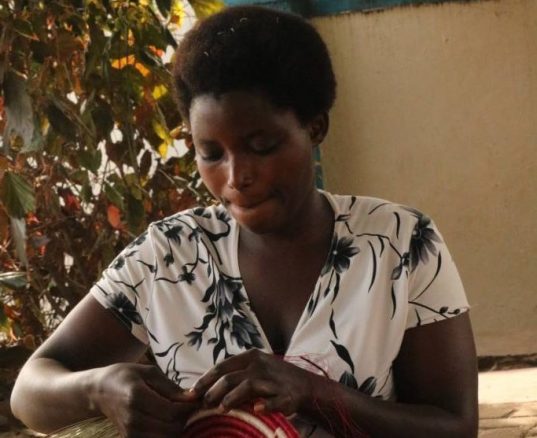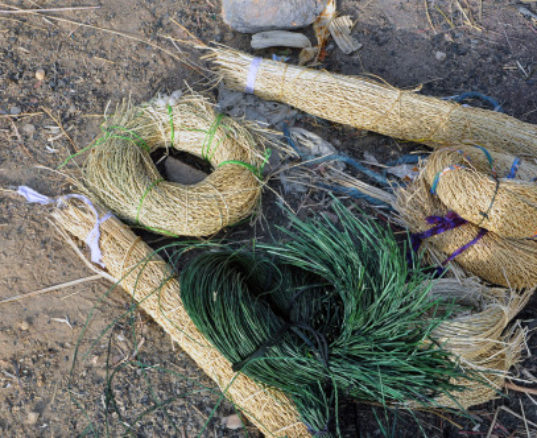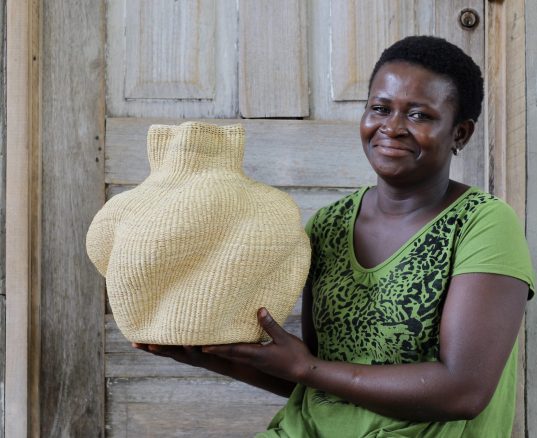Zulus have been weaving baskets for centuries. Up until 1800 Zulu men did the weaving. However European Colonial contact changed that when men were forced to work in the mines and women had to learn to weave and did so producing items for day to day use until about 1920. Then as outside utensils ( cups, containers, pans) found their way to the most remote regions of Zulu land through trade, basket weaving all but came to a halt.
The art of weaving Zulu baskets was almost lost when a Lutheran missionary, in an attempt to win converts, set a basket weaving school. He had found a few older women who remembered the craft and were willing to teach.
Now it is still the women who do the weaving. The work whilst the men are away at the mines and are able to earn an income for themselves. Usually weaving stops when the men return from the mines at the major holiday periods.

